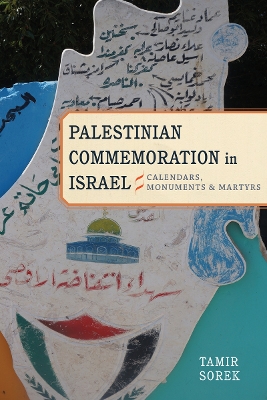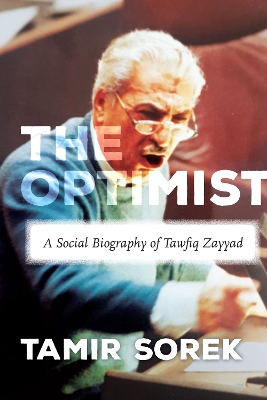Stanford Studies in Middle Eastern and Islamic Societies and Cultures
2 total works
Collective memory transforms historical events into political myths. In this book, Tamir Sorek considers the development of collective memory and national commemoration among the Palestinian citizens of Israel. He charts the popular politicization of four key events-the Nakba, the 1956 Kafr Qasim Massacre, the 1976 Land Day, and the October 2000 killing of twelve Palestinian citizens in Israel-and investigates a range of commemorative sites, including memorial rallies, monuments, poetry, the education system, political summer camps, and individual historical remembrance. These sites have become battlefields between diverse social forces and actors-including Arab political parties, the Israeli government and security services, local authorities, grassroots organizations, journalists, and artists-over representations of the past.
Palestinian commemorations are uniquely tied to Palestinian encounters with the Israeli state apparatus, with Jewish Israeli citizens of Israel, and by their position as Israeli citizens themselves. Reflecting longstanding tensions between Palestinian citizens and the Israeli state, as well as growing pressures across Palestinian societies within and beyond Israel, these moments of commemoration distinguish Palestinian citizens not only from Jewish citizens, but from Palestinians elsewhere. Ultimately, Sorek shows that Palestinian citizens have developed commemorations and a collective memory that offers both moments of protest and points of dialogue, that is both cautious and circuitous.
Tawfiq Zayyad (1929-94) was a renowned Palestinian poet and a committed communist activist. For four decades, he was a dominant figure in political life in Israel, as a local council member, mayor of Nazareth, and member of the Israeli parliament. Zayyad personified the collective struggle of the Palestinian citizens of Israel, challenging the military government following the creation of the state of Israel, leading the 1976 nationwide strike against land confiscation, and tirelessly protesting Israeli military occupation after 1967. With this book, Tamir Sorek offers the first biography of this charismatic figure.
Zayyad's life was one of balance and contradiction-between his revolutionary writings as Palestinian patriotic poet and his pragmatic political work in the Israeli public sphere. He was uncompromising in his protest of injustices against the Palestinian people, but always committed to a universalist vision of Arab-Jewish brotherhood. It was this combination of traits that made Zayyad an exceptional leader-and makes his biography larger than the man himself to offer a compelling story about Palestinians and the state of Israel.

